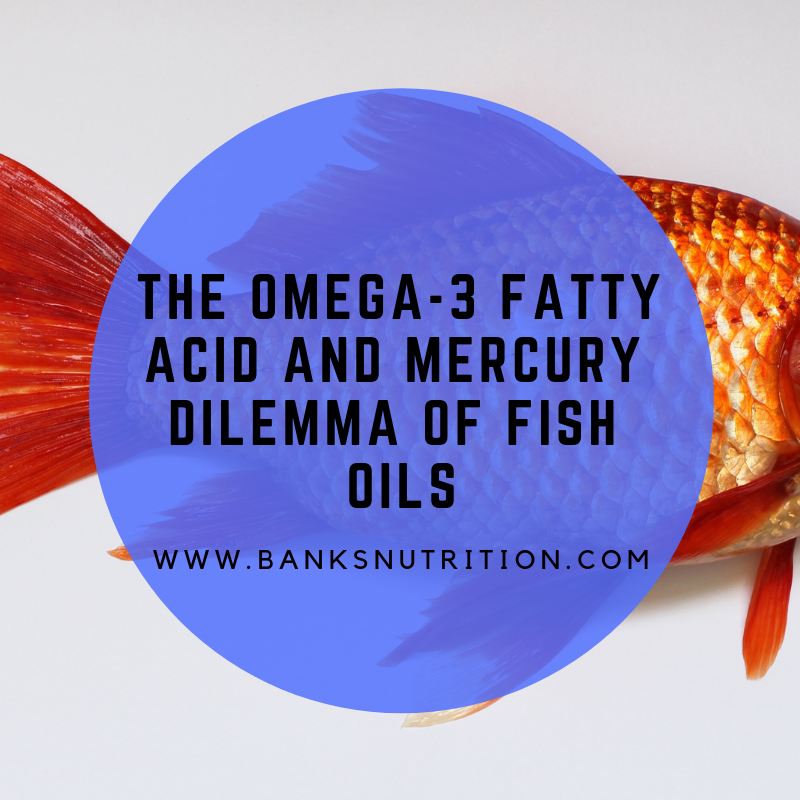
The Omega-3 Fatty Acid and Mercury Dilemma of Fish Oils
October 17, 2012
-
The omega-3 fatty acids impart significant health benefits from lowering blood triglycerides and raising good cholesterol to reducing inflammation
-
We make very little omega-3s ourselves
-
How to make sure you get enough omega-3 fatty acid
The Omega-3 fatty acids impart significant health benefits from lowering blood triglycerides and raising good cholesterol to reducing inflammation. The list of common diseases that higher omega-3 fatty acid (omega-3s) intake may help prevent is impressive. Few in science question these relationships.
The dilemma regarding omega-3s seems to be rather how we can get enough of these helpful fats to reap the benefits. This requires between 3 and 4 grams. The current US dietary intake is about 0.3 grams, or only a tenth of what is needed for health benefit. Only a couple of hundred years ago they came exclusively from diet. That has been disrupted by several alterations to the western diet.
All omega-3s originate in the plant kingdom in a fatty acid called alpha linoleic acid (ALA). Many animals can consume this plant source, and they have a series of enzymes that convert ALA into active omega-3s in their body. Humans are included in this group and had consumed a diet which was rich in ALA allowing us to make perhaps up to half our needed omega-3s. The other half came from animal product from animals consuming a diet rich in ALA and therefore rich in omega-3s in their fat. The denser plant sources of humans such as green plants (vegetables) and certain seeds are now not a dominant portion of the diet.
The western diet has replaced much of our vegetable consumption of 75 years ago with grains which do not contain ALA. Accordingly, we make very little omega-3s ourselves. Beef used to contain considerable omega-3s because cattle consumed mostly grass which contains ALA. They now consume mostly corn and soybeans which contain none.
All of this leaves us with the three common options:
-
Don’t get enough omega-3s
-
Eat wild fish 4-5 times each week
-
Use fish oil supplements
Wild is highlighted here as most of the fish consumed to “fix” the problem is farm raised. Wild fish consume smaller fish and the chain backs all the way down to the smallest eating green algae, a dense source of ALA. Farm raised fish consume grain and just as with their land based counterparts, make very little omega-3.
The worst choice above is to not get enough omega-3s. The second two options (wild fish and fish oil supplements) have an added issue. The fish that are dense omega-3 providers can tend to have problems with accumulating mercury and PCBs. While we have studied the benefit of the omega-3s, any harm done by exposure to mercury has not been well understood. A new study has shed some light on the issue.
The study examined 572 men from Scandinavia who consumed varying amounts of wild fish. They looked at the myocardial infarction (MI) or heart attack rates of the different levels of consumption compared to age matched non-consumers. As an additional twist, the study looked at mercury levels in participants to see if that also affected MI rates. The general conclusions were that high omega-3 consumers had somewhat lower MI rates than lower level consumers. When the two groups were also further split into groups reflecting both high omega-3, and high or low mercury groups, the results were quite different.
High omega-3 intake but with high mercury levels was no better than low omega-3 intake. Higher mercury exposure appears to negate any benefit of intake of omega-3s. The greatest reduction in MI risk was in those consuming high omega-3s with low mercury exposure.
The conclusions seem to be pretty straight forward:
-
Higher omega-3 fatty acid intakes lower MI risk
-
Higher coincidental mercury intake negates any benefit
Which solution each individual chooses is unique to their lifestyle. For most it will be to take fish oil supplements. Only a few companies have their oils independently tested to certify that they are free of significant levels of mercury and PCBs. So if fish oil is your best solution, make sure it is a certified oil free of significant contamination. Otherwise the solution may be no solution at all.